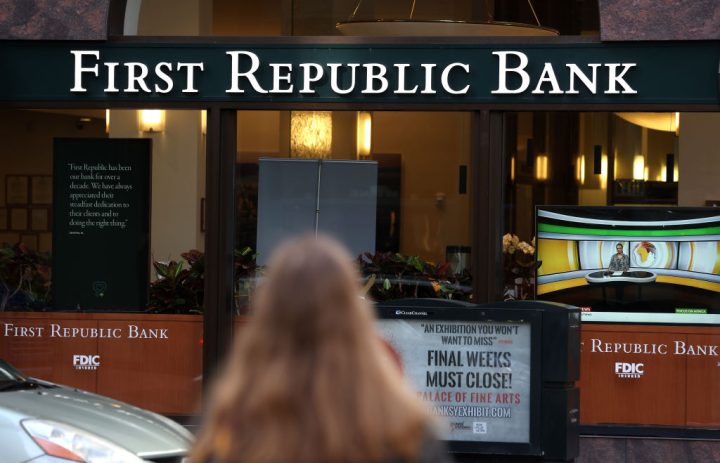Can a banking crisis really be going this well? After a week of panic withdrawals and a crashing share price, the First Republic Bank in the US will be taken over nearly in its entirety by J P Morgan Chase, in a shotgun marriage facilitated by the Federal Deposit Insurance Corporation (FDIC). No depositors will lose money, and most of the bank’s functions will continue uninterrupted – just as they did in the case of HSBC’s takeover of the UK arm of Silicon Valley Bank last month.
We have now had four major banking collapses in the space of six weeks, with remarkably little spillover into the economy at large and the misery mostly limited to shareholders in the banks concerned. Otherwise, stock markets have largely escaped collateral damage. This takeover doesn’t come cost-free – the FDIC’s Deposit Insurance Fund will shell out £13 billion, paid for by all banks and, by implication, depositors. But compared with the crisis of 2008/09 the US and the world has escaped lightly.
What happens if the contagion spreads to one of the largest banks, too large to be absorbed by another bank?
That doesn’t mean, however, that the banking crisis is over, nor that we do not need to worry about further collapses. So far, the banks which have gone bust, although large, have been second rank. What happens if the contagion spreads to one of the largest banks, which is too large to be absorbed by another bank? Many commentators have refused to use the term ‘crisis’ to describe what has gone on in banking over the past six weeks, but it really would start to merit the word if one of the too-big-to-fail banks got into trouble.
Moreover, the fact that depositors are escaping without loss brings up the hoary subject of moral hazard. If it gets into the heads of depositors that they do not run the risk of loss because they will always be bailed out some way or another, what incentive do they have to steer clear of dodgy banks? They can go chasing the most extravagant interest rates, funded by risky borrowing, and still be confident of getting their money back. That will merely encourage wanton risk-taking. Government may at some point want to revisit the policy of offering 100 per cent deposit guarantee schemes – maybe a 90 per cent guarantee would be better at encouraging responsible banking.
There is also the issue of what the wobble in the banking system means for consumer choice in the medium to long term. In normal circumstances, J P Morgan Chase would not be allowed to take over a bank the size of First Republic, at least not without regulators having to weigh up the consumer interest. That was waived because of the urgency of First Republic’s rescue. But it is not hard to see a situation in which the largest banks end up gobbling up significant numbers of smaller competitors, to the detriment of the market.
What is happening now may not lead to another 2008/09, but only a brave person would say we are over the worse yet.







Comments